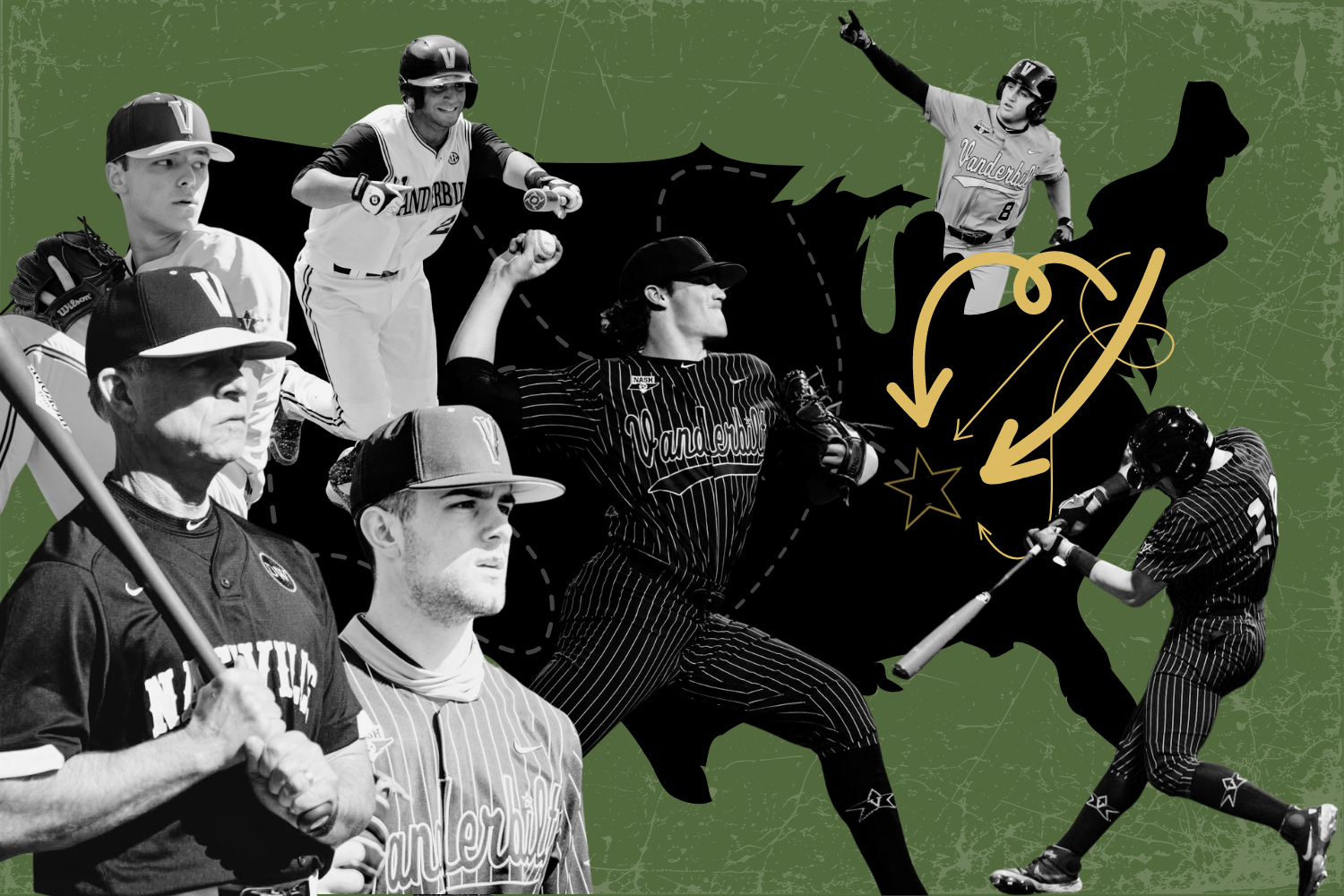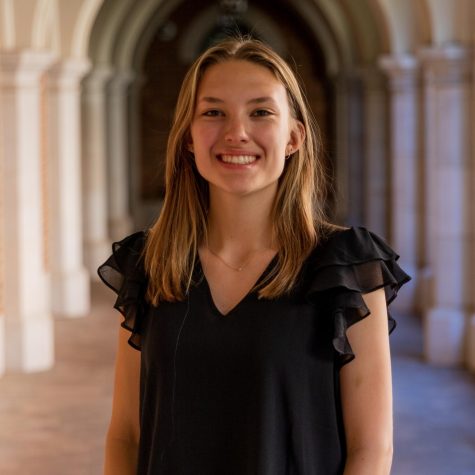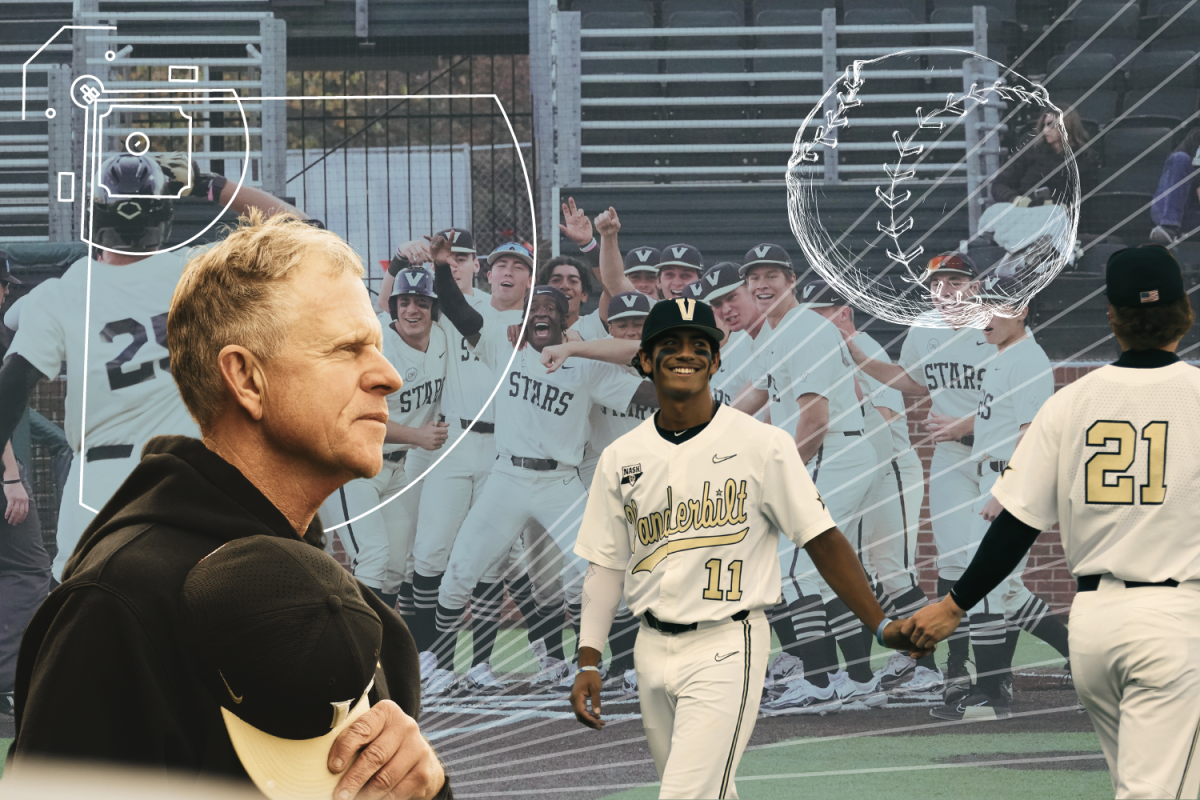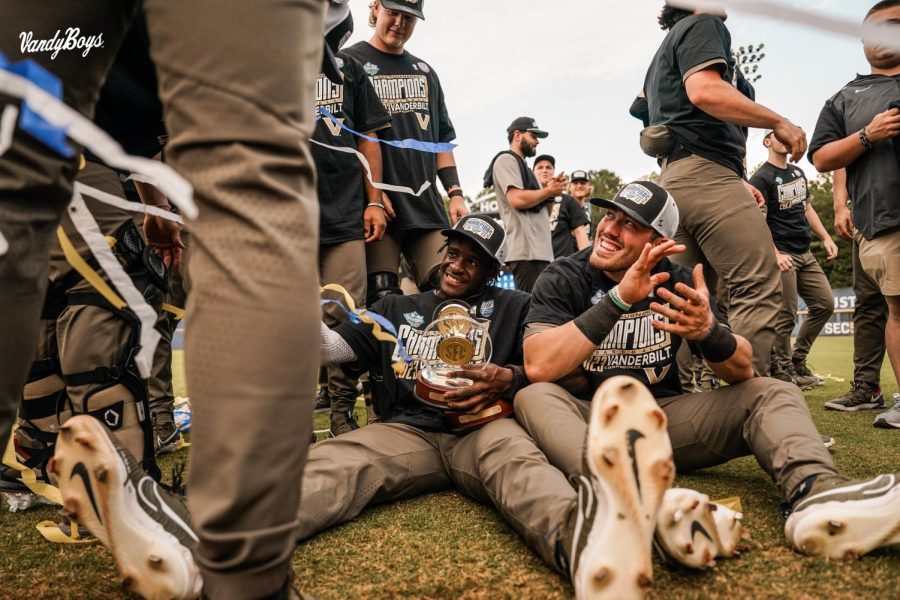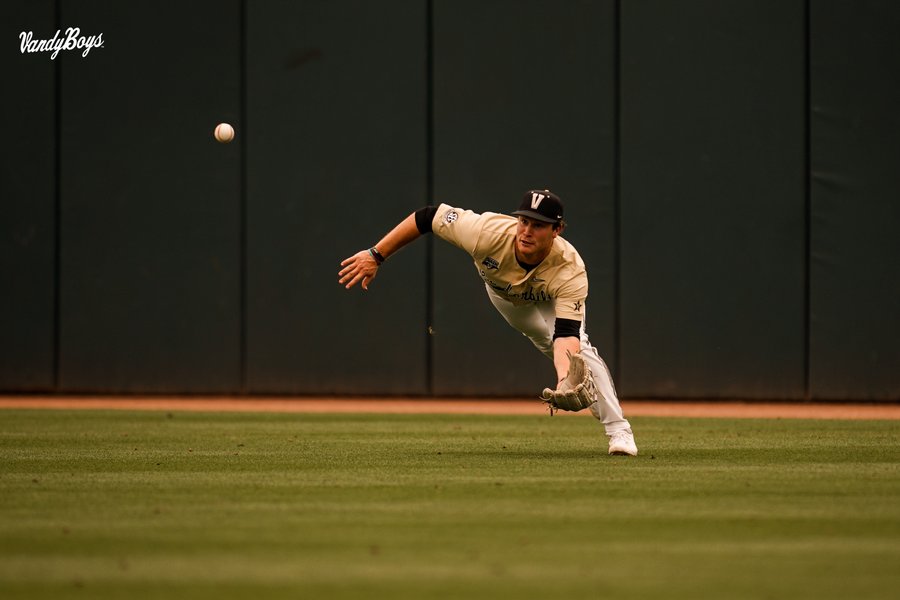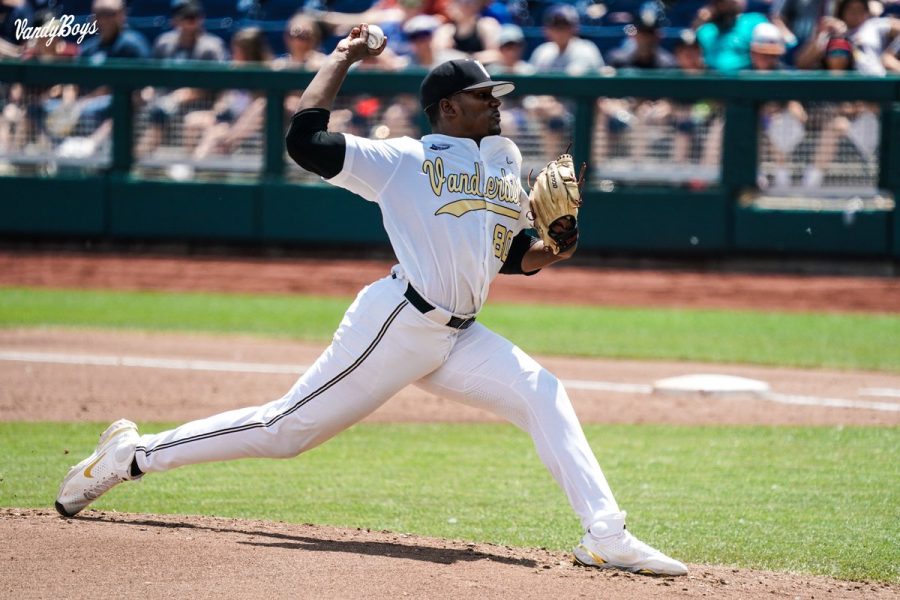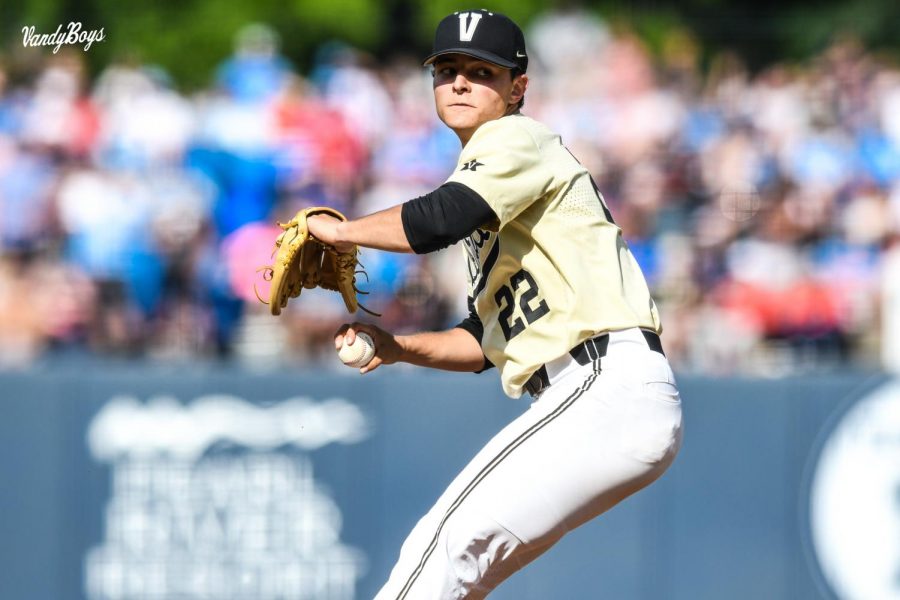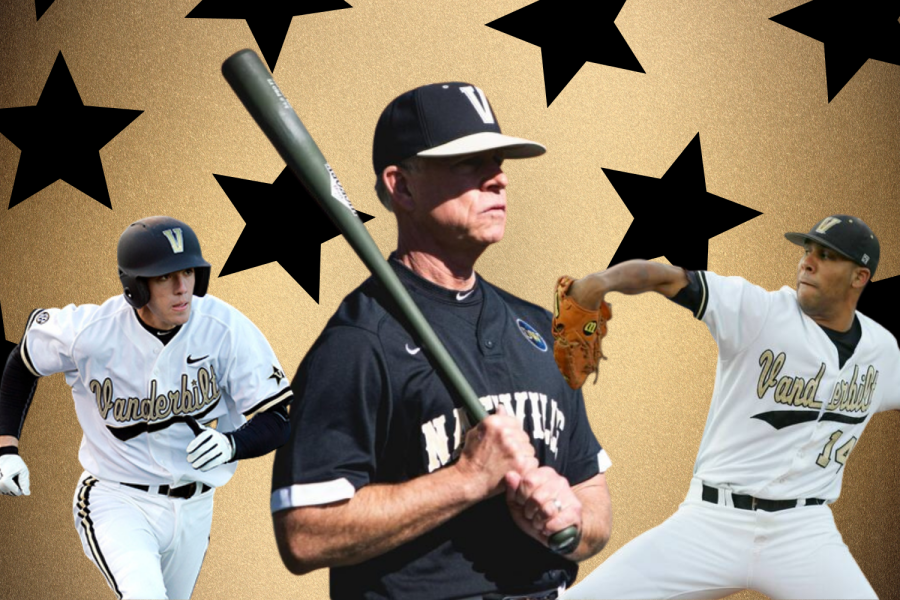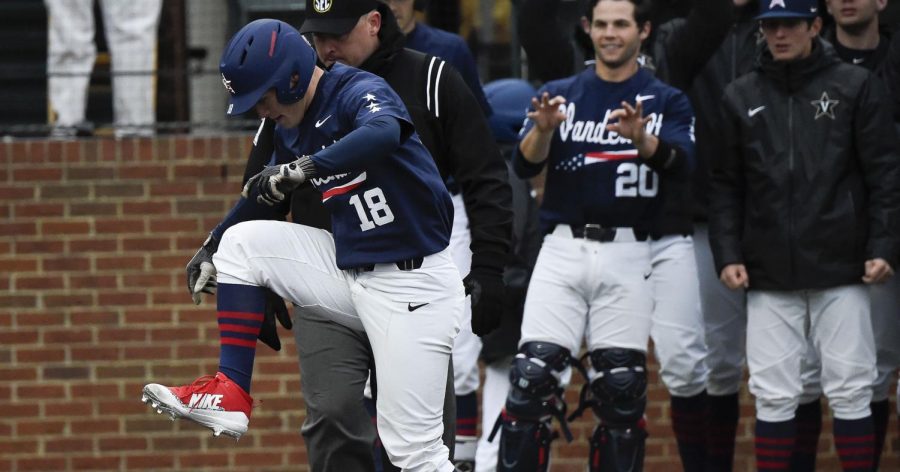What constitutes a sports dynasty? Although defined formally as “a team or individual that dominates their sport or league for an extended period of time,” the assessment of such is so inherently subjective that people always disagree. Some might be quick to point out that, even though you have had a few good years of success, a dynasty is something more prolonged than that. Not just championships contribute to a dynasty; winning seasons, all-star and MVP selections and the creation of household names hold weight, too. To create a dynasty is to raise the standard by going into uncharted territory to forge a new path, albeit a better one, to succeed in the hopes that you will create something so special that its greatness will be lasting.
Vanderbilt athletics is in the midst of witnessing the creation of a sports dynasty under baseball head coach Tim Corbin. His newly forged path is how he has recruited and produced major league players: 10 years, 50 players, 4 first-round picks, 11 picks in the first five rounds of the MLB draft and one common denominator. All hail from the Northeast of the United States. Since his tenure as head coach began in 2003, Corbin has created a dynasty of premier talent from the Northeast that is unique to other SEC schools.
Competitiveness. Toughness. Dedication. Grit. Determination. These things compose elite athletes, especially baseball players. Still, in the Northeast, anyone who plays baseball has to possess an elevated level of these characteristics. To be sure, the states that have been considered to compose the Northeast are the New England states of Connecticut, Maine, Massachusetts, New Hampshire, Rhode Island, Vermont, and the three mid-Atlantic states of New York, New Jersey and Pennsylvania.
This story has three essential elements: an origin, a crafting and a product.
The origin:
The origin story of Corbin’s Northeast talent pipeline began long before he stepped on the Vanderbilt campus and even before baseball became a scholarship sport. To understand the current pipeline, we need to go 1,200 miles east of Vanderbilt University to the small town of Wolfeboro, N.H.
Wolfeboro has a current population of about 6,000 people. It sits on the picturesque Lake Winnepasake. In the summer, you almost always see people on their boats by day and catching a concert at the unique pavilion venue nearby at night. Wolfeboro is so beautiful that after vacationing there for a summer, its image might be ingrained in your memory. Yet, it is so similar to its neighbors that you might blend the memories together.
If you happened to find yourself at Bailey’s Restaurant on Railroad Ave in the mid-1970s to 1980s, perhaps you met Corbin in passing. Corbin worked at Bailey’s from 7th grade all the way through high school, starting first as a busboy and working his way up to the grill. The 30-hour-a-week paychecks did not break the bank, but Corbin enjoyed it because it allowed him to make a little cash on the side while playing his lifelong sport: baseball. Little did these customers and the Bailey’s Restaurant owner know that the boy they were employing would become one of the most decorated head coaches in collegiate baseball history.
After graduating from high school, Corbin left Wolfeboro and attended Ohio Wesleyan University, where he played baseball and served as a student assistant for the football team. He then coached a high school JV baseball team while getting his master’s degree at Ohio State University. He also served stints at Wofford College and Presbyterian as an assistant and head coach, respectively. Corbin was an assistant at Clemson for nine years before accepting the head coaching job at Vanderbilt.
It has been decades since Corbin was bussing tables at Bailey’s Restaurant, enough for the restaurant to be revamped into an ice cream shop. Yet, when asked about his hometown and what it was like growing up in the Northeast, a smile spreads across Corbin’s typically serious demeanor.
“I think naturally, I enjoy going up there because that’s where I’m from,” Corbin told The Hustler. “I have an affinity for players [in the Northeast] because of their ability to play well in those locations of the country that make it difficult to get on the baseball field.”
Corbin didn’t just stumble upon the Northeast as a unique source of talent when he took the Vanderbilt job. He recruits these players because he understands the innate challenges that come with playing the sport in the region. While he can name the hometown, major and family members of every person within the program, Corbin can connect with Northeast players on an even more personal level because he lived a similar experience.
Crafting of an elite athlete in the Northeast:
By Weather…
Anyone who has grown up in the Northeast can tell you spring is more of a continuation of the winter. Although the days start to get longer, snowbanks linger and the mud is inescapable. This is especially felt by high school athletes trying to play baseball.
Depending on the year, players may report not to the field but to the gymnasium for tryouts. Mock fields are set up from tees and drop-down bases, artificial mounds created at home from plywood, grass-like carpets are carted in and batting cages are set up. For some, the first in-season game might be the first time they step foot on a baseball diamond.
“When the weather isn’t cooperating, it’s just about being creative and finding ways to get [in] your work,” Sophomore Chris Maldonado said. “Whether you have a small area or are able to get outside, it doesn’t really matter.”
Still, though, opening day is like no other. At the field, the wind is so raw that tears roll from your eyes, making you feel as if they are freezing before you can wipe them away. Red, blotchy, wind-burnt cheeks of parents and fans populate the crowds. You step out onto that diamond for the first time and take a deep breath, braving the elements because, although it might not feel or look like it, the calendar tells you it is baseball season.
“If you’re in New England, then your spring from a weather standpoint doesn’t start to look good until the middle of April,” Corbin said. “[Players in the Northeast are] under limitations from probably the end of October until April, and that is a long time. It’s six on six off.”
The ability to play in less-than-desirable weather conditions translates well to Nashville when these players arrive on campus. Nashville is certainly not a deep south baseball school. Because of that, the early weeks of the season and year-round training can go from shining bright sun to torrential downpour, snow or hail (as experienced by Vanderbilt baseball fans last season) in minutes. One thing is sure to Corbin and Co. when recruiting Northeast talent: if they can play in the Northeast, they can play anywhere.
“To be able to play in environments that as players aren’t always as we want them [is] something that I take pride in as a player from the Northeast.” Maldonado said.
Through other sports…
This six-on-six off-schedule created by the Northeast weather also lends itself to players being multi-sport athletes in high school, which Corbin and Co. are looking for. It is not unusual to glance at a Vanderbilt roster and see athletes who were varsity, all-state or even all-region in at least one other sport during their high school career. This is valuable in the ever-increasing specialization era of youth and high school sports.
“There’s something to be said about football players, hockey players, basketball players who engage in frequent competition that is very team-oriented,” Corbin told the New England Baseball Journal. “There’s a lot of anticipatory skills that grow inside those sports that you can’t get on a baseball field. And I also think there is a body element to it [as well]… I think in playing other sports, those are some of the qualities and components that allow a kid that’s playing baseball to benefit as he goes forward in the game.”
Northeast athletes do not typically play baseball 12 months out of the year, but the athletic skills refined in other sports are something Corbin only sees as a benefit.
Through Travel…
One thing that is a given about playing a club sport in the Northeast is that players and their families have to travel a great deal. Baseball players from this region travel long distances to team practices and tournaments. This crafts an elevated level of dedication in the athletes. Playing opportunities are not just in your backyard or another town over; they are hundreds if not thousands of miles away, which also comes with a significant monetary commitment.
“Traveling down south is definitely a big part of being a Northeast player. Especially in the summers,” Maldonado said.
Maldonado recalls getting his name “put on the map” at a tournament in Emerson, Ga. more than 800 miles from his hometown in Short Hills, N.J.
Still, Corbin and his staff always try to see the best of the best in the Northeast perform, even if they have to travel to the athletes, and are frequently seen at high school games and showcases.
“Since I’ve been a Division I coach at Clemson and here at Vanderbilt, [through those] 31 years, I’ve spent a lot of time [in the Northeast recruiting players],” said Corbin.
The product:
Through all this crafting of an elite athlete in the Northeast, what is the product? Why does Corbin and Co. keep returning to the Northeast, and who are these players?
According to Corbin, Northeast athletes play right when they come to West End. From start to finish, the Northeast athletes tend to have the most net improvement, and that is what he sees the value in: continual improvement and the desire to get better every day.
“[Players from the Northeast] probably have higher ceilings.” Corbin said, “For most of those kids once you get them here and you load them up with repetitions, their ceiling becomes high.”
These athletes also possess an elite level of competitiveness, which is necessary for a program competing for a championship every year.
“I like their competitiveness,” Corbin said, “I like their fibers…I think [the Northeast style of player] is very beneficial to our program.”
Among those 50 players are the likes of Ryan Flaherty, Pedro Alvarez, Jack Leiter and numerous other MLB talents. Just the players listed alone account for just shy of 1,500 games played, 4,304 at-bats, 988 hits and 162 home runs. While the pitchers of this group have amassed 223 strikeouts and a career ERA of 177.2.
Eight players on Vanderbilt’s current roster hail from the Northeast, along with three commits for the 2024 class and four from the 2025 class. In the rest of the SEC, only Alabama has nearly the number of players from the Northeast at six on their 2024 roster.
Given all this, recruiting from the Northeast has closely been tied to Vanderbilt baseball’s success. It is almost certain that as long as Corbin is the head coach at Vanderbilt, West End will remain a second home for the premier Northeast baseball talent and eventual big-leaguers.



